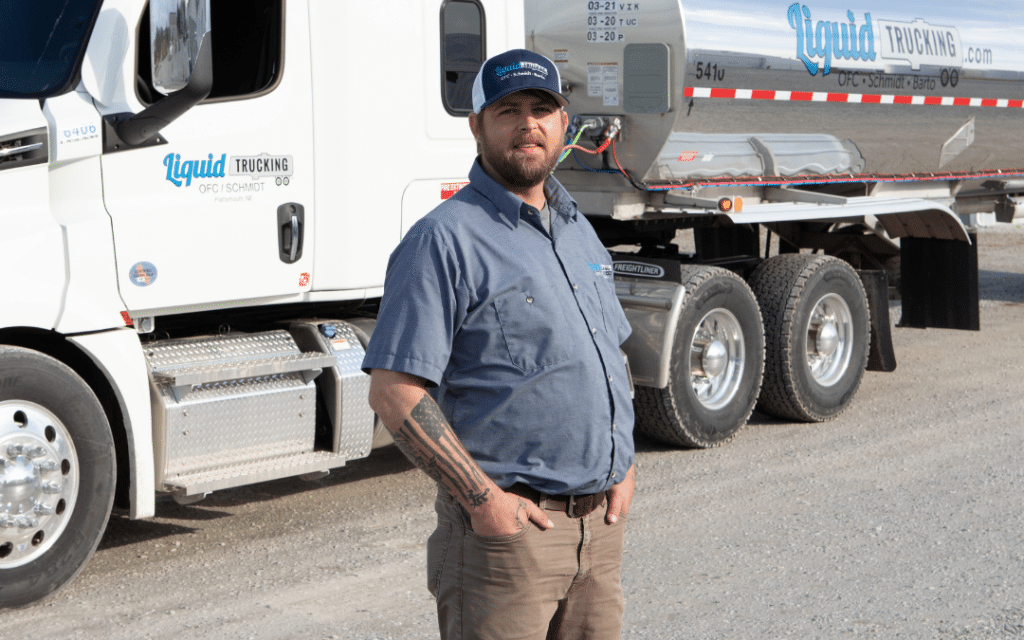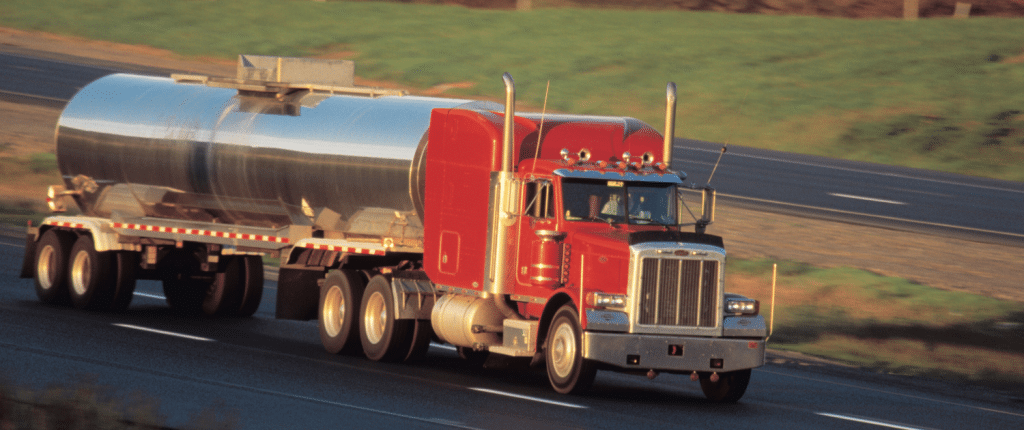Is Driving A Tanker Truck A Good Job?
Table of Contents
You’ve definitely seen tanker trucks rolling down the highway with their cylindrical containers in tow. You might not know it but you actually need a special endorsement to transport this kind of cargo.
Not just anyone can haul these tankers full of liquids and gases needed to keep our industries and vehicles humming along.
Now, if you’re reading this, there’s a good chance you’re already interested in getting your CDL license.
But is it worth going through the extra steps to get your tanker endorsement?
Driving a tanker truck can seem like a tough job. But in 2025, it’s also one of the most promising careers in trucking. With higher pay, steady demand, and niche skills, tanker driving attracts many new drivers. Still, it’s essential to weigh the rewards against the risks before jumping in. This article covers everything you need to know about tanker trucking in 2025, from industry outlook to earnings and training.
The State of the Trucking Industry and Tanker Driving

The US Truck Driver Workforce in 2025
As of 2025, the U.S. employs around 3.5 million professional truck drivers. Most of them drive regular freight, but only a small percentage hold tanker certifications. The trucking industry keeps expanding, yet there’s still a significant driver shortage. Experts estimate over 60,000 drivers are needed right now. Specialized roles like tanker driving are especially in demand since they require extra skills.
Why Is There Such High Demand?
Tankers carry liquids like fuels, chemicals, and food-grade products. These goods need constant transport, no matter how the economy swings. Companies are always searching for qualified drivers to do this job. If you get certified, you’ll find plenty of opportunities to earn and grow.
Earnings in 2025: What Can You Expect?

Starting Salary for New Tanker Drivers
New drivers can expect to start earning between $65,000 and $75,000 a year. With that amount quickly rising to $80,000 to $90,000 after just a few years. The exact amount depends on where you work and what you haul.
Earning Power with Experience
If you gain experience and add endorsements like hazmat, your salary can jump over $90,000 or even reach $150,000. Drivers working regional or long-distance routes usually make more. That’s a big boost compared to many entry-level jobs that need college degrees but offer less cash and more debt.
How Does It Compare?
Driving a tanker pays better than many other CDL jobs. The average tanker driver makes between $10-15,000 more than a regular semi-truck driver.
Plus, you don’t need to spend years in college. Instead, you can start earning good money much faster. It’s a smart choice for those who want to get ahead without piling up student loans.
How To Get Your Tanker Endorsement
The Basics: Get Your CDL Class A
First, you need a valid CDL Class A license. That’s standard for most big trucks. After that, you add a tanker endorsement, which proves you know how to handle liquid cargo.
You can also get a tanker endorsement with a Class B CDL, but you won’t be able to drive tanker-trailers.
Adding Endorsements
You can earn a tanker endorsement by taking a simple knowledge test when getting your permit. You simply tell your local DMV that you’re interested in taking the Tanker Endorsement exam.
If you want to carry hazardous materials, you’ll also need a hazmat endorsement. To get this, you’ll take a written exam and a background check. Once approved, you’ll get a special “X” endorsement, showing you’re qualified for both liquids and hazardous loads.
Gaining Experience
Many companies prefer drivers to have previous driving hours. Good training and safety protocols are essential. Remember, extra certifications mean extra safety measures and responsibility. This is especially true if you’re going to be driving hazardous materials.
Pros and Cons of Tanker Driving
Pros
- Higher pay: Tanker drivers tend to earn more than other trucking jobs.
- Consistent demand: Industries like fuel, chemicals, and food always need transport.
- Fewer loading tasks: Unlike container trucks, tankers don’t require much loading or unloading.
- Specialized skills: Being an expert in this niche job keeps your options open.
- Travel opportunities: Regional routes put you on the road across the country, making the job exciting.
Cons
- Safety risks: Handling flammable or hazardous liquids can be dangerous.
- Load shift issues: Liquids can surge or move, affecting truck handling.
- Extra training: More safety classes and certifications are necessary.
- Higher insurance costs: Insurance premiums are more expensive due to the risks.
- Time pressure: Many loads are time-sensitive, which can add stress.
Industry Outlook for 2025 and Beyond

There’s always going to be a high demand for foods like milk and various gases for industrial use.
Despite the push away from fossil fuels. Fuel and natural gas extraction projects continue to boost demand, especially in places that don’t want pipelines built.
What’s Coming Next?
The energy industry’s push for more oil and natural gas extraction fuels the need for tanker drivers. Routes to remote sites and refineries are increasing, creating steady work. The trucking industry is on the rise, and tanker driving is well-positioned to benefit.
Will Autonomous Trucks Replace Tanker Drivers?
While self-driving trucks are making progress, they won’t take over the job anytime soon. Liquid cargo is complicated to automate because of the shifting liquids inside tanks. Safety concerns and the unpredictable nature of transport still require human oversight for decades.
Possible New Regulations
Governments may impose stricter safety rules, especially around hazmat and environmental standards. This could mean new training requirements or tougher licensing rules—making the job more challenging but also safer in the long run.
So, Is Driving A Tanker Truck A Good Career in 2025?
If you have a responsible attitude and a focus on safety, tanker driving offers great benefits. High pay, job stability, and chances to grow make it attractive. However, the job requires handling high responsibility and working under pressure. For those ready to take on the challenge, tanker trucking can be a lucrative and rewarding career.
Tips for Aspiring Tanker Drivers
- Start with your CDL: Ensure you get your Class A license first.
- Add endorsements: Study for the tanker and hazmat tests.
- Gain experience: Seek entry-level jobs that provide training or mentorship.
- Stay updated: Keep track of industry regulations and safety protocols.
- Build your resume: Focus on safe driving and certifications.
Driving a tanker truck in 2025 offers many advantages, but it’s not without challenges. If you’re responsible, safety-minded, and want top earnings, tanker driving is a smart choice. It’s a career with growth potential and resilience, even in changing times.
If you’re interested in starting your tanking career, training programs are ready to help you get certified. The trucking world still needs skilled drivers—so why not be one of them? Prepare now, and you could secure a stable, profitable future on the road.






